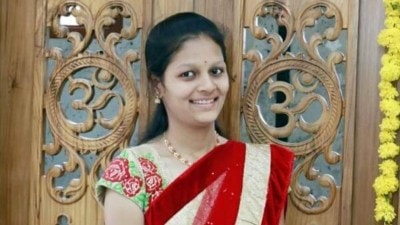- India
- International
Move to mainstream kids with disabilities: Will identify, integrate them early
This effort is being led by the Delhi Commission for Protection of Child Rights (DCPCR), and the first step towards this was taken this week at a round table conference with various education and health stakeholders and experts.
 According to DCPCR member Anurag Kundu, the aim is to be able to intervene early in the life of children to address their learning needs. (Representational Image)
According to DCPCR member Anurag Kundu, the aim is to be able to intervene early in the life of children to address their learning needs. (Representational Image)
Efforts are underway to formulate a state policy to identify disabilities in children at the earliest possible stage, to ease the process of integrating them in mainstream schools later in life.
This effort is being led by the Delhi Commission for Protection of Child Rights (DCPCR), and the first step towards this was taken this week at a round table conference with various education and health stakeholders and experts.
According to DCPCR member Anurag Kundu, the aim is to be able to intervene early in the life of children to address their learning needs.
After the preliminary discussion, three primary levels have been identified at which screening has to be conducted — at birth itself to identify disorders; at the anganwadi or pre-primary school level, between the ages of 18 months and 3 years; and at the early school level, between ages 5 and 8.
“Disorders such as Down Syndrome and Cerebral Palsy are identifiable at birth, so we are trying to work towards a method through which the discharge of newborn babies (from hospitals) is only done after screening. Others can be identified when they are toddlers. Now, no one identifies these issues until around a decade later when the child starts under-performing academically,” said Kundu.

According to Gita Dang, founder of Bridge2Inclusion, a platform that works to mainstream persons with special needs in workspaces, an early identification policy can go a long way in easing children into mainstream schools.
“The earlier we identify a case, the earlier we can know the scope of a problem and resources required and enable early intervention. This will give them a stronger opportunity to get into school and get mainstreamed. I also hope that we can work towards training mainstream teachers to be able to identify red flags in children between 3 and 6 years. That is far better than to try and get them to play catch-up at the age of 14. Without early intervention, it can just be too little, too late,” she said.
Kundu said the aim is to try and formulate a “nuanced, operationally feasible and technically sound” policy within the next six months.
A health department official said the next step should be to try and understand the work already being done in this regard.
“We need to understand what ASHA and anganwadi workers are doing currently and whether we are training them in this. Of course, after that we should have the mechanisms to implement and monitor screening at all three levels identified. On our side, we shall ensure that the requisite doctors and machinery is available at hospitals or polyclinics as will be laid down in the policy,” said Shaleen Mitra, OSD to the health minister.
Starting 2018, all private schools in Delhi have been required to reserve 3% seats for children with special needs, but this has not been able to take off because of the low number of applicants and schools claiming they do not have resources to handle children with learning disabilities.
Apr 19: Latest News
- 01
- 02
- 03
- 04
- 05






































